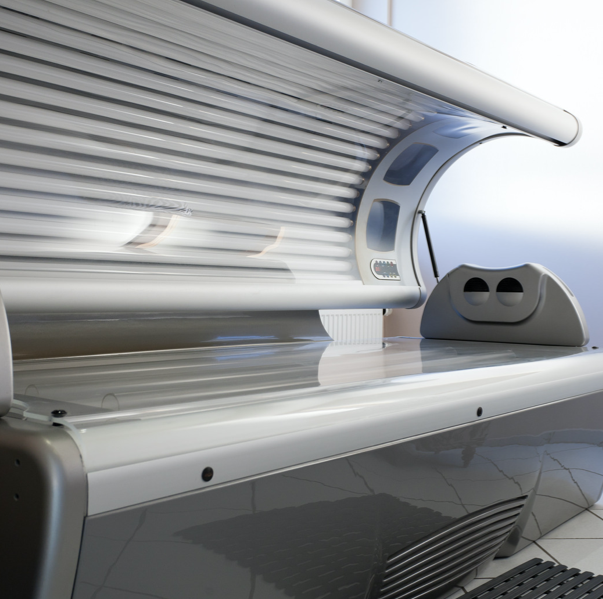- Fast results
- 4,000+ locations
- 4.8 star rating
Need Help? (888) GET LABS


This article is Medically Approved ✓ by Dr. Edward Salko

You may already know that women tend to live longer than men.
But this data does not warrant that women are always healthier than men.
After all, women’s health and wellness still depend on how good health habits overpower the bad ones.
Years of awareness dissemination have taught us that bad habits often include heavy drinking, constant smoking, a sedentary lifestyle, and overeating.
However, there are also some small habits that we tend to tolerate as they may seem harmless at first.
But these little habits, when they become too automated, can lead to issues that jeopardize health and wellness.
As we celebrate National Women’s Health Week, let’s dive into subtle bad habits often ignored by most women.

A good fashion sense will always earn you compliments. However, there are downsides to always following trends and fashion influences.
One example is wearing tight-fitting or body-hugging garments like skinny jeans and body shapers. These pieces of clothing are common fashion choices even with some women.
Sure, they may bring little discomfort, but the body eventually adjusts. But there is more harm brought by tight-fitting clothes beneath the skin.
A neurological condition known as meralgia paresthetica has been associated with wearing super tight trousers.
Meralgia paresthetica is caused by the compression of the lateral femoral cutaneous nerve.
You’ll notice the condition when there is a tingling and painful sensation on the outer thigh stretching to the outer side of the knee. It is accompanied by numbness and sensitivity, even with just a light touch.
The pressure from the natural tightness of the skinny jean disrupts the nerve in the thigh.
Neurologists also noted that wearing high-heeled shoes can aggravate the development of the condition as the footwear tilts the pelvis.
While the meralgia paresthetica is not permanent, it can interrupt your routine and cause intense pain when left untreated.

A woman’s sexual health is as valuable as her physiological and mental health.
Several issues could affect a woman’s reproductive system. These issues encompass:
1. sexually transmitted diseases (STDs)
2. fertility problems
3. pregnancy complications
4. menstrual-related conditions
5. chronic diseases like polycystic ovary syndrome (PCOS) and endometriosis
Addressing these ailments vary from one age group to another.
Nevertheless, every woman needs to pay more attention to their sexual health as there are medical conditions like STDs that have no symptoms such as chlamydia, HPV, and gonorrhea.
As a result, these infections are often neglected. Without the proper treatment, they could lead to medical complications and infertility.
To hinder these conditions, safe sex practices are highly encouraged to ensure protection from STDs.
Likewise, setting a regular doctor’s appointment, especially if you’re sexually active, is a practical step towards prevention.
Avail of services like HPV vaccination, STD blood tests, and screening tests for cervical and ovarian cancers.

Poor dietary choices always have unpleasant consequences for the body. But it’s not just your food preference that affects your health.
Neglecting the proper schedule for eating or skipping meals altogether can cause severe damage to your body.
There are several reasons why you can be tempted to skip meals.
For one, the demands of work could drive you to set aside your lunch, or perhaps there is a new diet fad in town you’d like to try.
Whatever the justification is, making a habit of skipping meals can lower your metabolism. As a result, you could gain weight, feel tired all the time, and experience weakness and headache.
Studies have shown that there is a correlation between meal skipping and obesity. Hunger increases your cravings, especially for unhealthy foods high in sugar, fats, and salt.
The best thing to do to avoid meal skipping is to eat smaller but frequent meals and plan your meal. Also, keep snacks that are high in fiber and protein nearby.

Ever since the internet has taken over people’s daily routine, research confirmed the adverse effects of excessive screen time.
Whether you are online to use social media, watch movies, or do something work-related, you could sabotage your health if you fail to regulate your time.
Americans allot more than 10 hours of screen time in a day. And this period continues to increase since lockdowns were implemented during the pandemic.
Today, the average screen time is at an astounding 19 hours a day.
Some of the most common health effects of spending too much time online include:
1. sleep deprivation
2. higher risk for obesity
3. poor concentration
4. weaker memory
5. headaches and eye strains
6. addictive behaviors
7. lower self-esteem
Spending too much time on social media can also affect your mental health. The illusion and idealism that other people create can indirectly trigger insecurities and even anxiety.
Similarly, the long hours of sitting down or staying in one position can also cause strains in your body.
You can reduce screen time by setting up an alarm or notification. Do other productive activities that will leave you preoccupied. Likewise, keep your phone away from the bed when you’re sleeping.

In a study published by the International Journal of Women’s Dermatology, approximately 2 to 3 million new cases of non-melanoma skin cancer were documented to occur among women below 45.
Skin cancer may be treatable, but preventive measures should still be observed.
Sun exposure remains to be the primary cause of skin cancer. It can also cause wrinkles, freckles, and age spots.
Dermatologists have long advocated for the use of broad-spectrum sunscreen to filter the harms of the sun’s ultraviolet rays. Not doing so increases your risk for skin damages.
In the same way, it could also speed up the aging process of the skin.

In a survey conducted by the American Academy of Dermatology (AAD), one-third of 1,000 US adult respondents lack a basic understanding of factors causing skin cancer.
This result includes their unawareness of how tanning beds can lead to melanoma and carcinoma.
Since exposure to sunlight has become a known hazard, those who wish to get a tan turned to tanning beds with the misconception that it is safer than the sun.
Several studies have strengthened the correlation between indoor tanning and skin cancer development.
The association dwells on the fact that tanning beds use ultraviolet radiation, which can cause severe damage to the skin cells.

The concept of healthy sometimes gives the idea that going to annual checkups is unnecessary anymore.
However, with the string of health issues women face nowadays, going to the doctor for annual medical tests should be on top of the list.
According to CDC, the top three leading causes of death among women are heart disease, cancer, and stroke.
Factors like family history, lifestyle choices, and aging often play their parts in these medical conditions.
If you skip your yearly doctor’s appointment, you might miss the opportunity to be diagnosed with specific diseases at their early treatable stage.
Annual physical examinations and routine check-ups are preventive measures that help detect your risks to certain illnesses. It also catches a developing disorder before it becomes too complicated.
In this process, your doctor may order specific screening tests aside from performing a physical exam.
There are several laboratory tests given when a set of symptoms arise. However, there are some tests that are recommended for women to take regardless of if they feel or observe nothing.
These screening tests include the following:
2. STD Tests
5. Blood Pressure Screening
6. Colonoscopy or Sigmoidoscopy
7. Eye Exam
8. Dental Checkup
9. Mammogram
10. Pap Smear
11. Skin Exam
For older women, early screening for menopause is essential to understand the changes in their menstrual cycle.
Hormonal issues can cause an imbalance in bodily chemicals.
But you can undergo a smooth menstrual transition with suitable management actions recommended by your gynecologist.
Women’s health and wellness should always be a priority.
Thereby, it is imperative always to be mindful of bad habits, big or small, that can lead you closer to diseases.
Never take for granted simple preventive measures like applying sunscreen, eating on time, and keeping an active lifestyle.
Additionally, see a doctor at least once a year and have your comprehensive wellness checkup.
These actions are often deemed negligible, but they surely can save you from potential medical problems.

© Copyright 2025 Personalabs. All Rights Reserved.